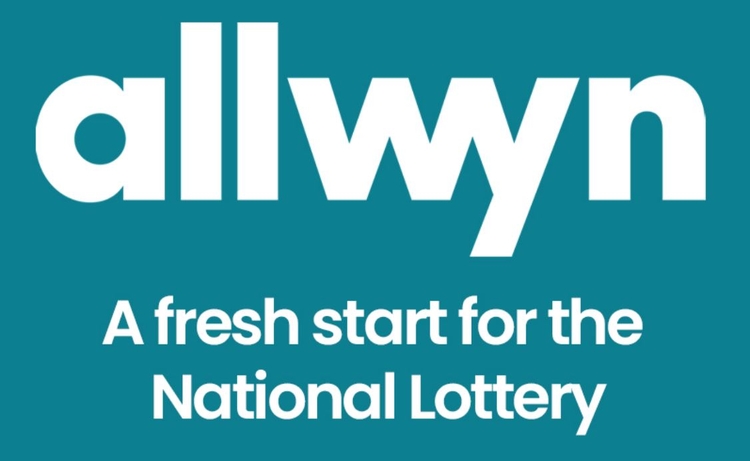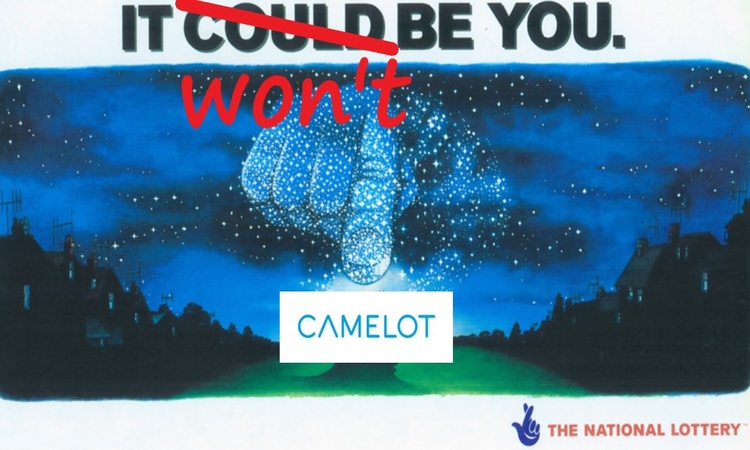As bad weeks go, the long time National Lottery steward, Camelot, have had a corker.
Not only did they lose their bid to continue running the much loved lottery competition, but they were also smacked with a fine from the UKGC for failings.
This is a really big deal because Camelot have been running the lottery since its’ inception back in 1994, and that 28 years has instilled the company in the minds of the British public to such a degree that many don’t even recognise the distinction between them.
The new custodians, a company called Allwyn, fought off competition from 3 other bidders, and are Europe’s biggest lottery provider so come with plenty of experience.
Why Did Camelot Lose the National Lottery License?

Camelot only exist to run the National Lottery, the company don’t do anything else, and in their time they have had to negotiate the dawn of the internet, smart technology, and ever changing gambling regulations.
They have also given more than £45 billion to 660,000 different good causes over their 3 decades in charge, so it’s fair to ask why they ultimately lost out to Allwyn.
Well, for a start Allwyn have pledged to give £30 billion to good causes in their first decade, a 50% increase on a decade by decade basis. This isn’t as simple as it seems of course, because back in the 90s you could still get a Freddo for 10p so inflation cheats the numbers somewhat here, but still.
More importantly, Allwyn put forward a good case for ways to combat gambling addiction and improve player protection using technology. As we know, social responsibility couldn’t be further to the front of everyone’s minds at the moment with the Government white paper on gambling due very soon.
Allwyn are also very experienced, and already run lotteries in the Czech Republic, Greece, Cyprus, Italy, and Austria, so they won’t exactly be a learning curve for them. Plus, with Nectar points and air miles inventor Sir John Mills behind them they couldn’t have been better equipped. He also ran the bid for the 2012 Olympics to be run in the UK, and we all know how that turned out.
Other bidders gunning for the license included Richard Desmond, the businessman who is currently 107th richest person in the UK thanks to his porn empire (we can see why he didn’t get it); and Sisal, an Italian firm who might have been stronger competition but were acquired by Flutter part way through the bid which complicated things.
It seems then that it was a two horse race in reality, and Camelot haven’t exactly been in everyone’s good books over the last five years or so.
A £3.5 Million Shove Out the Door for Camelot
 This is a bit of a click-baity heading to be honest, but it must sting for Camelot to lose the license and be fined all in the same seven day period.
This is a bit of a click-baity heading to be honest, but it must sting for Camelot to lose the license and be fined all in the same seven day period.
Their lottery reign will end in 2024, and the fine is for failings between 2016-2020.
- Around 20,000 winning players using the app were incorrectly told they had won nothing after scanning the QR code.
- A further 22,210 players were sold and charged for 2 tickets when they had only tried to buy 1.
- 65,400 players who had self excluded using Gamstop or been flagged as possibly at risk of gambling harm were sent marketing messages by the National Lottery.
It’s important to note though that this was all down to tech failings rather than anything untoward, and Camelot acted to correct the errors as soon as it was made aware of them.
What’s more, none of the players who had self excluded were actually able to gamble despite being sent the marketing materials, and all mis-sold tickets were either refunded if they were losers or honoured if they were winners, so no one lost out.
Camelot were understandably eager to reinforce this, saying:
“We welcome the Gambling Commission’s recognition that, as soon as the issues became known to us, we reported them and acted promptly to resolve them. We’re also pleased that the commission makes clear that we did not act negligently, and that there was no negative impact on returns to good causes or financial benefit to Camelot.”
This won’t have helped their case though, and along with a 2017 telling off from the National Audit office for letting profits grow much faster than contributions to good causes, it may have been a big part of why Allwyn beat them to the finish.
How Will the National Lottery Change?

It might actually change quite a bit.
One of the criticisms of Camelot’s tenure has been their attempts to compete with online casinos by introducing fast paced instant win games on their website.
Allwyn have opted for an alternative approach, starting with re-introducing the showbiz style weekly draws, and also reducing ticket prices back to £1 and having two draws a week rather than one.
That means more winners, albeit with lower jackpots most likely. That said, I don’t know about you but I’d celebrate just as hard after winning £3 million as I would after winning £6 million.
They also want to introduce more Euromillions style ‘super national lotteries’, as well as coax back younger players who are increasingly choosing online casinos instead, by going hard on tech improvements including installing lottery tech in shops.
So, potentially some pretty big changes then.
Thankfully not for all those who currently work for the National Lottery though, as it is thought that most will be transferred over so that the lottery’s Watford base will remain in tact, along with around 1,000 jobs.

